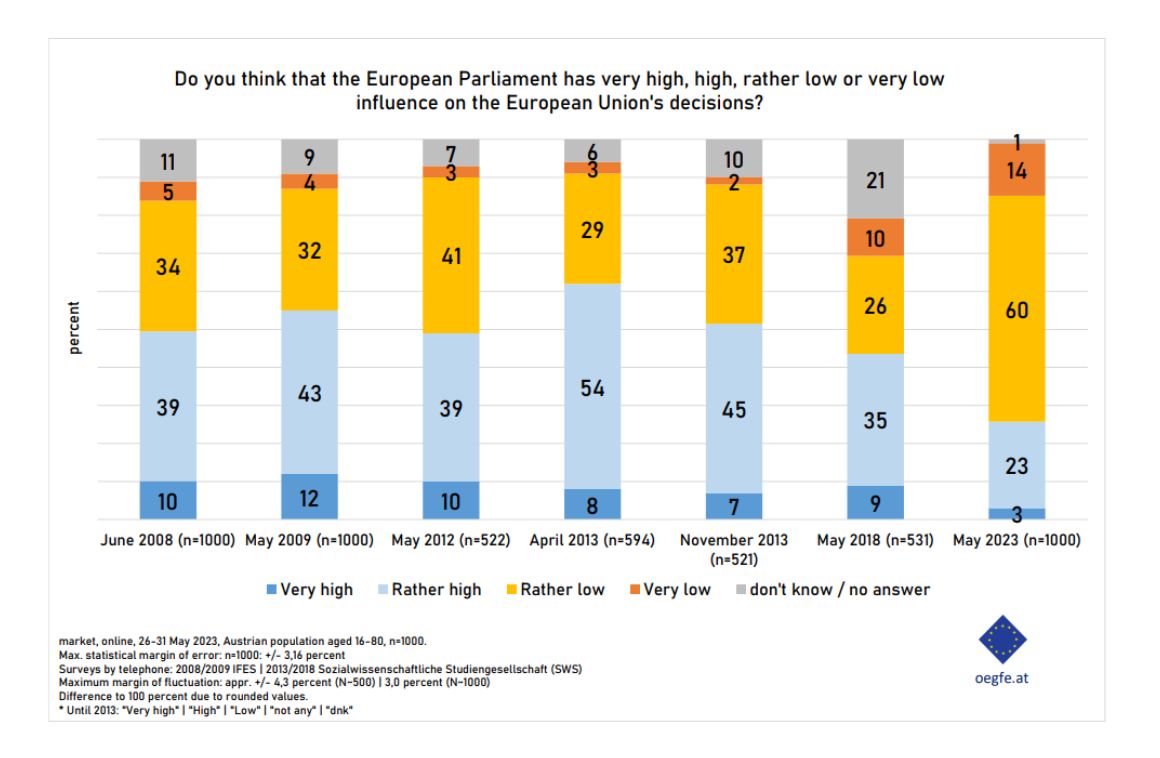In about one year – on June 9th, 2024 – the European Elections will take place in Austria for the seventh time. Public awareness of the EU Parliament though is still rather low, a recent ÖGfE survey finds.
A total of 38 percent of interviewees state that they “very often” (12 percent) respectively “often” (26 percent) take note of news or information about the European Parliament in the media. A majority (61 percent) does not share this view and answer that they “rarely” (35 percent) or “very rarely” (26 percent) hear about the EP in the media. Media perception is similar to that recorded a year before the last European elections in 2019.
In May 2023 a quarter of respondents feel “very well” (3 percent) or “rather well” (22 percent) informed about the work and tasks of the European Parliament. However, nearly two thirds answer that they are “rather poorly” (41 percent) or “poorly” (25 percent) informed. Respondents feel a little less informed than was the case about a year before the 2019 EU elections, when at least one third stated to be up to date on the activities of the EU Parliament.
45 percent have the impression that the European Parliament has a “high” (10 percent) or “rather high” (35 percent) influence on the decisions made by the European Union. 37 percent do not agree and say that the European Parliament exerts “rather low” (28 percent) or “very low” (9 percent) influence. 19 percent cannot comment on this. An ÖGfE timeline shows that the number of those who grant the European Parliament a significant influence on the European Union’s decision making, has always been higher than those who doubt it.
About half of respondents say that the European Elections are important to them (19 percent: “very important” | 30 percent: “rather important”). One third of interviewees disagree (21 percent: “rather not important” | 13 percent: “not important at all”) while 17 percent have not made up their mind yet.
The current survey was conducted from 26 – 31 May 2023 by market (www.market.at) on behalf of ÖGfE. 1000 respondents were questioned online (Austrian population from the age of 16-80 / weighted according to gender, age, education and region). Maximum margin of error approx. +/- 3,16 percent. Difference to 100 percent due to rounded values respectively „don’t know / no answer.)
Survey 2008-2019: IFES, Sozialwissenschaftliche Studiengesellschaft – surveys by telephone.






